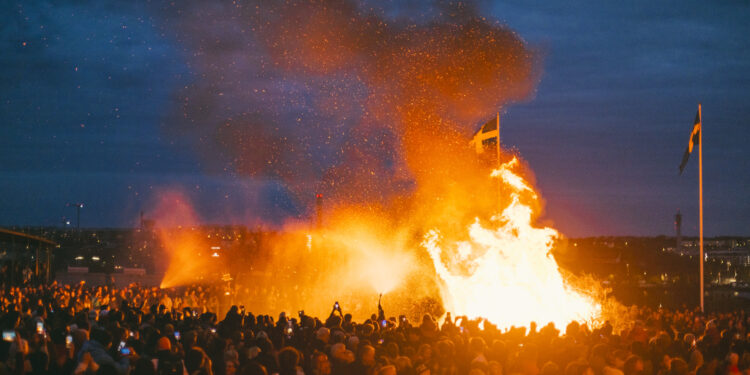Valborg, or Valborgsmässoafton, is a widely celebrated holiday in Sweden that marks the arrival of spring. It takes place on the evening of April 30th, transitioning into May 1st. Though the holiday has its roots in ancient pagan traditions, it has evolved into a festive occasion with deep cultural significance for Swedes.
Historical Origins
Valborg’s origins are linked to the ancient belief in celebrating the end of winter and the arrival of warmer, more fertile times. The name “Valborg” comes from Saint Walburga, a Christian missionary in the 8th century, who was later canonized and associated with protection against witches and evil spirits. Over time, the day became a blend of Christian and pagan customs, where people would light bonfires to ward off evil, celebrate nature’s renewal, and usher in the fertility of the new season.
Celebrating with Bonfires and Maypole Dancing
One of the most iconic aspects of Valborg is the large bonfires that are lit across Sweden. These bonfires symbolize the burning away of the old and the welcoming of the new. In modern times, people gather around the fires to sing traditional songs, enjoy food and drinks, and celebrate the season of growth and renewal.
In addition to the bonfires, Valborg is a time for dancing around maypoles, a tradition particularly popular in southern Sweden. The maypole, often decorated with greenery and flowers, symbolizes fertility and the joy of the coming summer months. Young and old join in lively dances, celebrating community and the vibrant new season.
The Social and Cultural Significance
For many Swedes, Valborg is a time to gather with friends and family. It marks a sense of collective renewal, where people come together to celebrate nature, life, and the end of the cold, dark winter months. It’s also a holiday enjoyed by university students, particularly in cities like Uppsala, where the celebrations can be especially lively and well-organized.
A Blend of Old and New Traditions
While rooted in pagan and religious customs, Valborg has evolved into a secular celebration with a strong focus on nature and community. It provides a unique opportunity to experience Swedish cultural traditions while embracing the hope and joy that spring brings.
Newshub news




Recent Comments